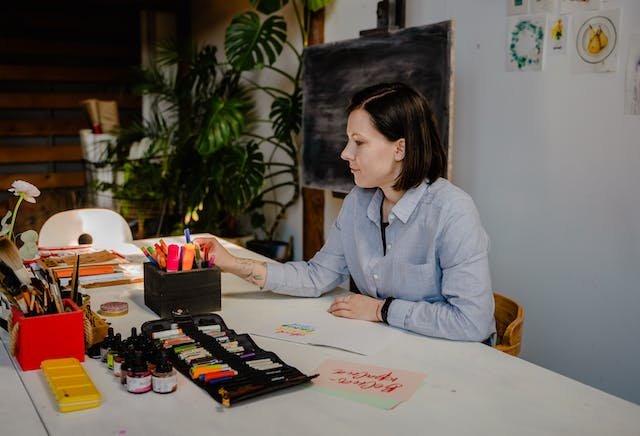Plunging into the high-stakes arena of job interviews can be a nerve-wracking experience. The ability to manage stress and nervousness is crucial for leaving a lasting impression. This article delves into expert strategies for conquering pre-interview jitters and maintaining composure during interviews, paving the way for professional triumph.
Mastering the Art

Understanding the Sources of Interview Stress
Before you can conquer pre-interview jitters, it’s vital to know what fires them up in the first place. There are often two main culprits: the high hopes and pressures we put on ourselves, and the fear of how we’ll be seen by potential employers. By pinpointing these stress sources, you’re better equipped to tackle them head-on.
Internal Pressures and Expectations
Placing high demands on ourselves can really crank up the tension. When it comes to sitting across from a potential employer, we often deal with our own internal pressures and the high expectations we set for our performance. It’s all about how we want to be seen—smart, capable, the perfect fit—and that can get our nerves buzzing like a swarm of bees.
The trick is acknowledging these feelings without letting them steer the ship. Imagine them as backseat drivers; they’re definitely there, but you’re the one in control. By recognizing our personal goals and fears, we grab the reins on our stress levels, taking the first step towards staying chill in the hot seat.
External Factors and Perceptions
Walking into an interview room can feel like stepping onto a daunting stage where every move is scrutinized. External factors such as the interviewer’s demeanor, the company culture, and the competitive nature of the job market play significant roles in mounting pressure.
Imagine the scene: You’re greeted by a panel of serious faces or a single interviewer peering over your resume with a fine-tooth comb. Instantly, this can trigger stress responses. Recognizing these external stimuli can help in mentally preparing to face them. By understanding that these factors are often out of your control, you can focus on what you can manage—your responses and attitude.
Pre-Interview Preparation: A Confidence-Boosting Routine
Getting ready for an interview isn’t just about going over your resume and job qualifications. It’s also about setting yourself up to walk in with your head held high, ready to take on the world. Let’s look at how you can create a routine that boosts your confidence and gets you prepped to handle that interview pressure like a pro.
Research and Practice
Jumping into an interview without doing your homework is like trying to hit a target with your eyes closed. Before setting foot in the interview room, it’s essential to research and understand the company you’re applying to. Look up their mission, their culture, and recent achievements. This knowledge can help you tailor your answers and show that you’re genuinely interested in being part of their team.
Once you’ve done your research, the next big step is practice. Mock interviews with a friend or in front of a mirror can sharpen your responses and make your actual interview feel like a second run. Remember, the more you practice, the more natural your answers will come, and the less room there’ll be for stress to sneak in. So, practice, practice, practice!
Visualization and Affirmations
Picture this: you’re stepping into the interview room, and you feel a sense of calm and readiness. This isn’t just wishful thinking; it’s the power of visualization. Before the interview, find a quiet spot, close your eyes, and imagine the entire interview process going smoothly. See yourself answering questions with ease and engaging with your interviewers confidently. This mental rehearsal primes your brain to act the part when the moment comes.
Now let’s talk about affirmations. These are positive statements you can repeat to yourself to build self-confidence. Think of them as your own personal cheerleader. Statements like “I am capable and well-prepared” or “I bring valuable skills to the table” can rev up your morale. Say them out loud or write them down every morning before your interview, and watch how they transform your mindset from doubtful to unstoppable.
Techniques for Managing Nervousness During Interviews
Staying calm and in control during an interview is key to making a positive impression. Yet, even the most prepared candidates can feel jittery with all eyes on them. Let’s explore some practical techniques that’ll help you keep those butterflies at bay, ensuring that you shine instead of shrink when you’re in the spotlight. These methods are about more than just “getting through it”; they are about empowering you to seize the moment and show why you’re the best fit for the job.
Calming Breathing Exercises
Sitting in the waiting room before an interview, you might feel your heart racing and palms sweating. This is where calming breathing exercises can work like magic. Deep breathing is one of the quickest ways to lower stress in the body. By focusing on taking slow, deep breaths, you send a message to your brain to chill out and relax. The brain then passes this message along to your body. Cool, right?
All you need to do is take a deep breath in through your nose, hold it for a moment, and then slowly exhale through your mouth. Repeat this pattern for a few minutes, like hitting the restart button on your nerves. It’s like having a secret weapon in your pocket that helps turn down the dial of tension, preparing you to enter the interview room with a steady heartbeat and a clear mind.
Positive Body Language
Slouching in your seat or crossing your arms might give off the impression that you’re not interested or defensive. It’s much better to sit up straight and lean slightly forward to show you’re engaged and eager. Keeping eye contact without staring can also show the interviewer you’re focused and confident.
Smiling is a simple but powerful tool. It can make both you and the interviewer feel more at ease, creating a more positive atmosphere. Just remember, your body speaks volumes, often louder than your words, so let it tell a story of someone who’s ready to take on new challenges.
Empowering Mindset: Overcoming Fear and Doubt
Stepping into an interview room can feel like stepping onto a stage where each action and word counts triple. It’s about more than just answering questions; it’s about overcoming the inner voice of fear and doubt that can trip you up. The real game-changer is crafting an empowering mindset, one that transforms those jitters into fuel for a stellar performance. Let’s dive into how anchoring yourself in the present and flipping challenges into chances for shine can set you up for success.
The Power of Mindfulness and Perspective Shifting
Stepping into an interview, our minds can become a hub of what-ifs and worst-case scenarios. That’s where mindfulness sweeps in, like a gentle reminder to stay in the present moment. By focusing on your breath or the details around you, you tell your brain that it’s okay to take a break from the worry treadmill. This trick can snap you back to the here and now, giving your nerves a much-needed chill pill.
Shifting your perspective is another game-changer. Instead of viewing the interview as a potential disaster, flip the script. See it as a chance to meet new people, learn something, and even have a bit of fun. Sure, it’s easier said than done, but by consciously replacing dread with curiosity, you transform the energy you bring into the room. Instead of a bundle of nerves, you become a proactive participant in a conversation about possibilities.
Turning Challenges into Opportunities
Facing an interview can feel like going into battle with your nerves. But what if we flipped the script and saw each challenge as a chance to shine? Embracing difficulties during an interview as opportunities not only showcases your problem-solving skills but also gives you a unique edge. It’s like turning a tough level in a video game into a chance to level up.
Consider this: every question, even the tricky ones, is an opportunity to demonstrate your unique strengths and experiences. By adopting a can-do attitude, you exhibit resilience and adaptability — two traits that are super valuable in any job. Remember, it’s not just about the right answers, but also about showing that you can keep your cool when facing the unexpected. So, take a deep breath and tackle each question as if it’s your ticket to the next round.
Post-Interview Reflection and Growth
Once you’ve bid farewell to your interviewer and closed the door behind you, the journey isn’t over. This is the golden hour for reflection—a chance to grow from the experience, regardless of the outcome. Your post-interview phase is essential for building resilience and improving your strategy for future opportunities. Take the time to consider what went well and identify areas where you can enhance your performance for the next interview.
Learning from Experiences and Feedback
After every interview, take a moment to acknowledge your efforts and the experience you’ve gained. It doesn’t matter if you nailed it or if there were bumps along the way; every interview is a learning opportunity. Reflect on the questions you handled well, and identify the ones that caught you off guard.
Make a habit of jotting down some notes post-interview. Ask yourself what you learned and how you can apply this knowledge to future interviews. Remember, feedback isn’t just about what you hear from the interviewer. It can also come from your own observations on how you managed stress and nervousness. By understanding your previous interview performances, you become better at tackling similar situations in the future.
Building Resilience for Future Opportunities
Stepping out of an interview, whether it went well or not, is just the beginning. Building resilience is key to turning every interview, regardless of the outcome, into a stepping stone for your next big chance. Developing a tough skin means learning how to bounce back from rejection and using it to your advantage.
Think of each interview as a lesson, focusing on what worked and what didn’t. Did you stumble on a question? Reflect on it and craft stronger answers for the next time. Remember, growth isn’t about perfection; it’s about progress. With every interview, you’re becoming more adept at showcasing your strengths and tackling your weaknesses.
Conclusion
Interview success is not solely about impressive resumes and qualifications; it’s about displaying confidence when the stakes are high. By understanding and implementing these strategies, job seekers can navigate the daunting landscape of interviews with grace, leaving interviewers with an indelible impression of self-assurance and capability.

